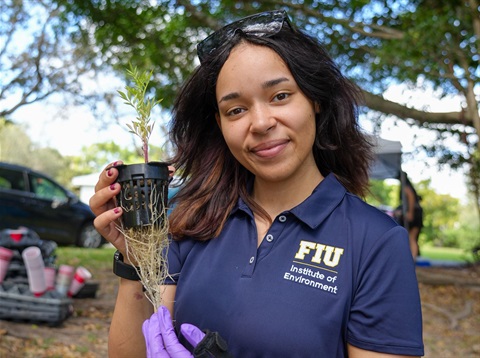Floating Flower Islands to help water pollution
Published on February 18, 2025

Pinecrest is tackling water pollution and invasive species in local canals with the new Floating Flower Islands pilot program. The project combines beauty and sustainability while protecting the ecosystem of Biscayne Bay and surrounding urban waterways.
"Pinecrest has long been a trailblazer in environmental sustainability, from launching Miami-Dade’s first free composting program to integrating green measures into our building code," said Mayor Joseph M. Corradino.
The first two floating flower islands will be installed in the canals on 115th Street between 69th Court and 70th Avenue, with one installation completed in February and a second scheduled in March 2025. Each 500-square-foot platform will feature plants like African marigolds, celosia, and amaranth alongside experimental native species. These plants remove pollutants while creating vibrant floral displays of pink, red, purple, and gold. The initiative also tackles invasive hydrilla, a fast-growing plant that disrupts our canal ecosystems and generates foul odors.
“Wetland ecosystems are the Earth’s kidneys and floating wetlands leverage this filtering function into urban waterways,” explains Jazmin Locke-Rodriguez, PhD, Founder and CEO of Phytoflora and a PhD student at Florida International University's Institute of Environment, who is leading the Floating Flower Islands project for the Village.
The Floating Flower Islands pilot program benefits Pinecrest residents by adding beauty to local canals, reducing odors, and improving water quality. This contributes to a cleaner, healthier, and more vibrant community for everyone to enjoy.
The harvested flowers will be sold at the Pinecrest Farmers Market, inviting residents to learn more about the program. Additionally, the program will serve as a replicable model for other municipalities seeking cost-effective environmental solutions.
Watch the Floating Flower Island installation: